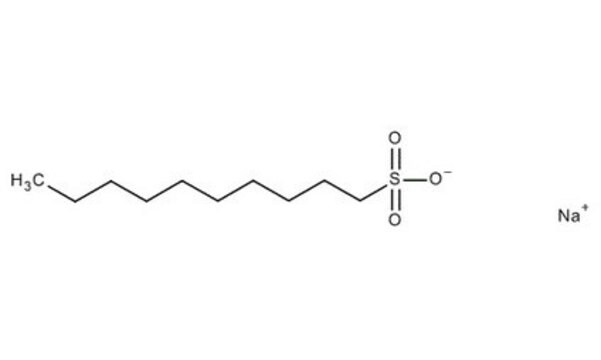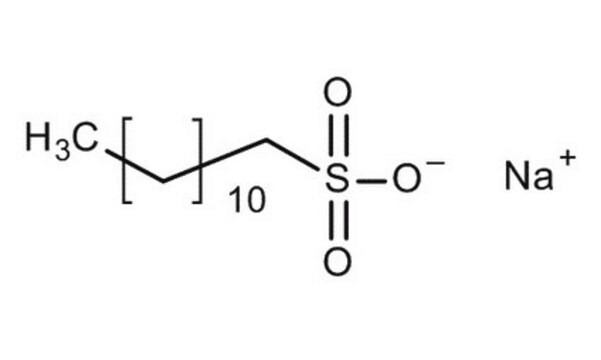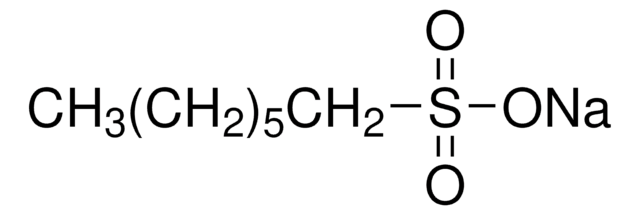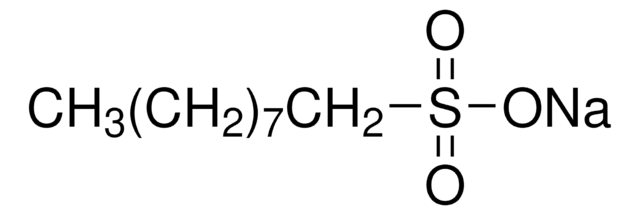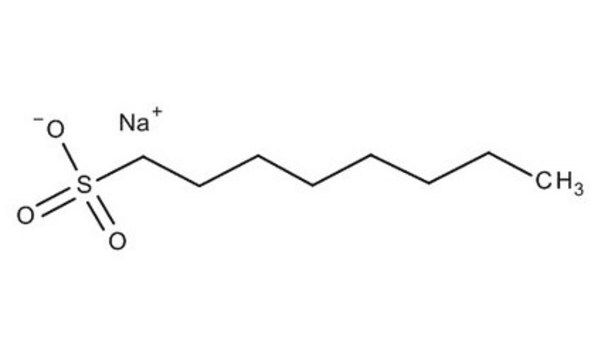30633
1-Decanosulfonato de sodio
≥99.0% (T)
Sinónimos:
Ácido 1-decanosulfónico sodium salt
About This Item
Productos recomendados
descripción
anionic
Nivel de calidad
Ensayo
≥99.0% (T)
mol peso
244.33 g/mol
técnicas
electrophoresis: suitable
mp
>300 °C (lit.)
solubilidad
H2O: 0.05 g/mL, clear
cadena SMILES
[Na+].CCCCCCCCCCS([O-])(=O)=O
InChI
1S/C10H22O3S.Na/c1-2-3-4-5-6-7-8-9-10-14(11,12)13;/h2-10H2,1H3,(H,11,12,13);/q;+1/p-1
Clave InChI
AIMUHNZKNFEZSN-UHFFFAOYSA-M
¿Está buscando productos similares? Visita Guía de comparación de productos
Descripción general
Aplicación
Código de clase de almacenamiento
11 - Combustible Solids
Clase de riesgo para el agua (WGK)
WGK 3
Punto de inflamabilidad (°F)
Not applicable
Punto de inflamabilidad (°C)
Not applicable
Equipo de protección personal
dust mask type N95 (US), Eyeshields, Gloves
Elija entre una de las versiones más recientes:
¿Ya tiene este producto?
Encuentre la documentación para los productos que ha comprado recientemente en la Biblioteca de documentos.
Los clientes también vieron
Nuestro equipo de científicos tiene experiencia en todas las áreas de investigación: Ciencias de la vida, Ciencia de los materiales, Síntesis química, Cromatografía, Analítica y muchas otras.
Póngase en contacto con el Servicio técnico

